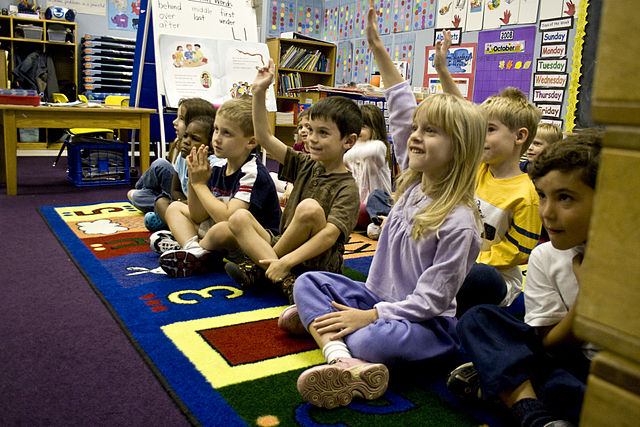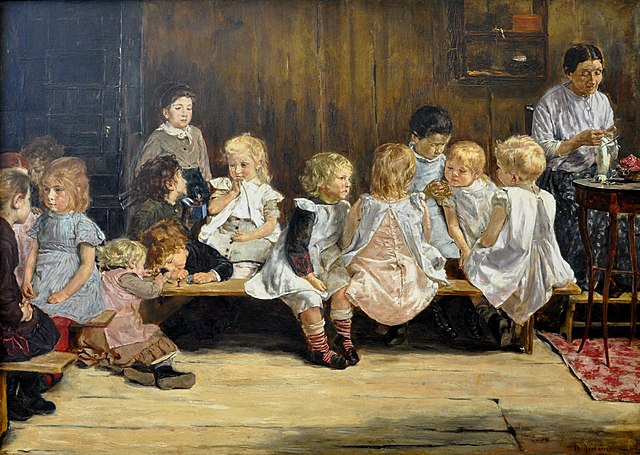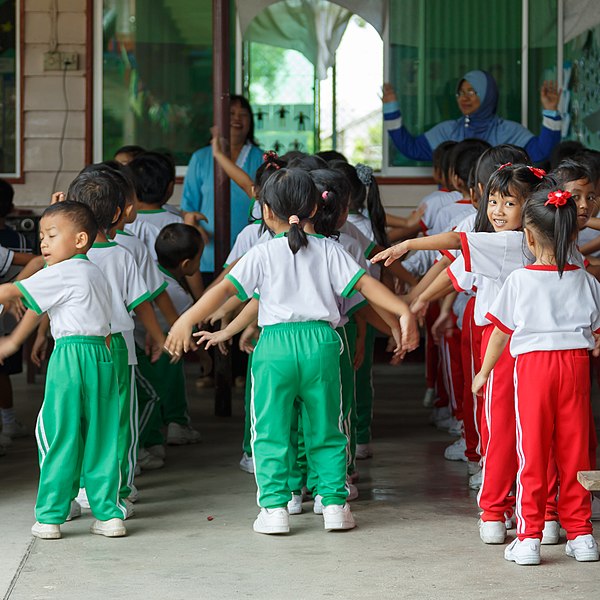Kindergarten is a preschool educational approach based on playing, singing, practical activities such as drawing, and social interaction as part of the transition from home to school. Such institutions were originally made in the late 18th century in Germany, Bavaria and Alsace to serve children whose parents both worked outside home. The term was coined by German pedagogue Friedrich Fröbel, whose approach globally influenced early-years education. Today, the term is used in many countries to describe a variety of educational institutions and learning spaces for children ranging from two to six years of age, based on a variety of teaching methods.
A kindergarten classroom
Kindergarten in Amsterdam 1880, by Max Liebermann
Kindergarten, by Johann Sperl, circa 1885
Friedrich Fröbel was one of the most influential founders of kindergartens, and he coined the name in 1840.
A preschool, also known as nursery school, pre-primary school, play school or creche, is an educational establishment or learning space offering early childhood education to children before they begin compulsory education at primary school. It may be publicly or privately operated, and may be subsidized from public funds.
Preschoolers in Malaysia exercising
Samuel Wilderspin, one of the founders of preschool education. 1848 engraving by John Rogers Herbert.
A Kindergarten in East Germany in 1956
Crafts at an Indian preschool, 2014








